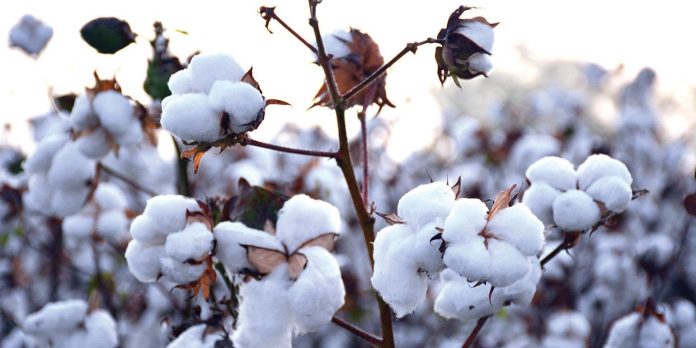Pakistan’s cotton production has hit 8.2 million bales in the 2023-24 period, with Punjab and Sindh provinces contributing almost equally, as reported by the Pakistan Cotton Ginners Association (PCGA).
As of January 15, the country has produced 8.258 million bales, marking a 67 percent increase from the previous year’s total yield of 4.9 million bales, as reported by Dawn. The increase is significant, considering that last year’s yield was heavily impacted by rains and floods.
Sindh’s production stood at 4.1 million bales, just slightly below Punjab’s output. The current distribution of cotton includes 292,000 bales purchased by exporters, including private companies, and 7.478 million bales bought by textile mills.
Meanwhile, ginners are holding onto 487,000 bales, with 165 ginning factories currently operational.
Naseem Usman, chairman of the Karachi Cotton Brokers Forum, estimates that the total cotton production might reach around 8.4 million bales. Including unregistered bales, he believes the figure could touch 9.5 million bales.
Ihsanul Haq, Chairman of the Cotton Ginners Forum, pointed out that despite a lower cotton acreage, Sindh has produced an amount almost equal to Punjab’s output and might even surpass it next year, as more growers are inclined towards this cash crop.
However, the domestic demand for lint is conservatively estimated at around 12.5 million bales. Pakistan is still awaiting the delivery of 1.6 million bales of imported cotton from last year, with an additional 0.8 million bales expected through land routes.
Usman noted that the rising domestic cotton prices have led textile mills to start importing cotton, which is comparatively cheaper.
Approximately 0.4 million bales have been contracted for import in the last month, with more contracts underway. However, border tensions, particularly at the Pakistan-Afghan border, are causing concerns among importers as numerous vehicles carrying cotton and other commodities are delayed.
Haq stressed the necessity for the textile industry to import cotton on a large scale due to the shortfall in local production. This need is further amplified by the local textile mills securing export orders worth around $3 billion at the recent Heimtextil Messe in Frankfurt, Germany, where 277 Pakistani mills participated.
With the expected reduction in power rates for the textile export sector and potential cuts in markup rates on bank loans, as recommended by the Special Investment Facilitation Council (SIFC), Haq anticipates that the domestic cotton market will intensify, increasing the industry’s reliance on imports.
























